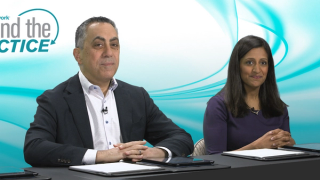
Colorectal Cancer
Latest News

Latest Videos

CME Content
More News

Expert panelists elucidate the mechanisms of ctDNA and MRD testing, providing a broad perspective on how they are used in cancer care.

Development on CYAD-101 as a treatment for patients with refractory/metastatic colorectal cancer continues after the FDA has lifted a clinical hold on the phase 1b CYAD-101-002 trial.
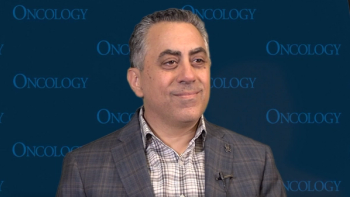
At 2022 ASCO, Tanios S. Bekaii-Saab, MD, reviews the MOUNTAINEER trial of trastuzumab plus tucatinib for HER2-positive metastatic colorectal cancer and foreshadows how an approved regimen may help improve outcomes in this patient population.
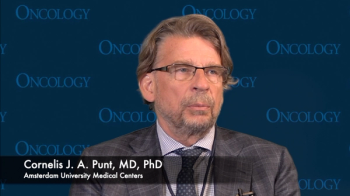
Cornelis J. A. Punt, MD, PhD, spoke about the phase 3 CAIRO5 trial of bevacizumab plus either FOLFOXIRI or FOLFOX/FOLFIRI for patients with initially unresectable colorectal liver metastases.

Serial postoperative ctDNA analysis could be a useful tool in guiding treatment decisions and improving care for patients with stage III colorectal cancer.

Shared insight on the potential roles of ctDNA and MRD testing in the monitoring and treatment of patients with colorectal cancer.

Centering discussion on a patient scenario of stage II colorectal cancer, expert oncologists consider how ctDNA may inform use of adjuvant chemotherapy in this setting.

Patients with mismatch repair deficient and/or microsatellite instability–high locally advanced colorectal cancer appear to derive promising benefit from treatment with neoadjuvant immune checkpoint inhibitors.
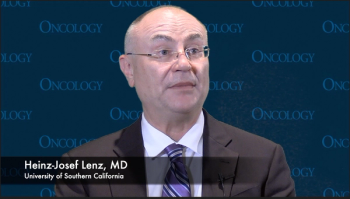
Heinz-Josef Lenz, MD, Describes Future Potential of CDC37 and MAOB as Predictors of Response in mCRC
The needle might be further pushed forward for precision medicine through exploration of novel proteins such as CDC37 and MAOB in patients with metastatic colorectal cancer.

MAOB and CDC37 gene expression appear to be 2 new promising targets in advanced colorectal cancer, according to Heinz-Josef Lenz, MD.
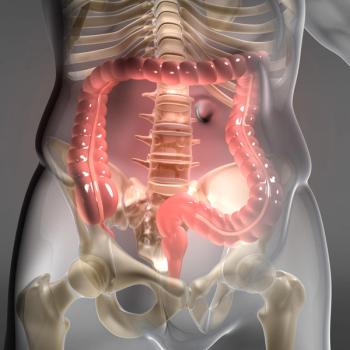
Patients with previously treated HER2-positive metastatic colorectal cancer experienced durable responses following treatment with tucatinib in combination with trastuzumab.
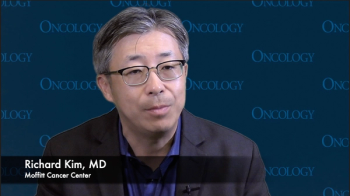
Richard Kim, MD, highlights future research efforts examining immunotherapy/chemotherapy combinations for patients with metastatic colorectal cancer.

Richard Kim, MD, discussed key findings of the phase 1b KEYNOTE-651 trial, examining pembrolizumab plus standard chemotherapy in patients with microsatellite-stable or mismatch repair–proficient colorectal cancer.
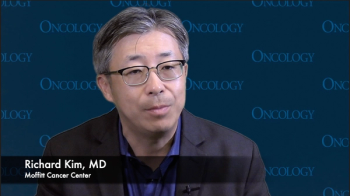
During the 2022 American Society of Clinical Oncology Annual Meeting, Richard Kim, MD, discusses the rationale for the phase 1b KEYNOTE-651 trial examining pembrolizumab plus chemotherapy in metastatic colorectal cancer.

Adding irinotecan to chemotherapy plus panitumumab for treatment of metastatic colorectal cancer did not result in a significant impact on efficacy.

In patients with colorectal cancer and synchronous unresectable metastases, resection of the primary tumor before systemic therapy did not result in an extension of overall survival.

Bevacizumab plus FOLFOXIRI was superior to bevacizumab plus FOLFOX or FOLFIRI in terms of efficacy but was more toxic in certain patients with initially unresectable colorectal cancer liver metastases.

Superior efficacy was observed when patients with RAS wild–type metastatic colorectal cancer were treated with panitumumab plus chemotherapy vs bevacizumab in the first-line setting.

Prolonged PFS Observed With Addition of Atezolizumab to FOLFOXIRI and Bevacizumab for Metastatic CRC
Atezolizumab plus fluorouracil, leucovorin, oxaliplatin, and irinotecan resulted in a tolerable safety profile and improved progression-free survival vs the control regimen in patients with metastatic colorectal cancer.

Drs. Cohen and Lewis close by outlining ongoing clinical trials in CRC and hopes for the future of care.

Stacy A. Cohen, MD and Mark Lewis, MD share key takeaways from the GALAXY study and discuss the clinical implications of using ctDNA-based assays for patients with CRC.

Experts describe cumulative ctDNA clearance rates in patients with stage I-IV disease who did or did not receive adjuvant chemotherapy in the GALAXY study.

In the phase 2 MOUNTAINEER trial, patients with previously treated HER2-positive metastatic colorectal cancer who were treated with tucatinib plus trastuzumab were shown to have an improved objective response rate.
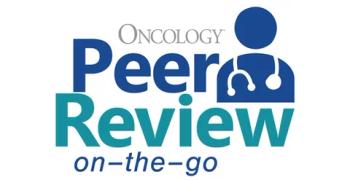
Tanios Bekaii-Saab, MD, talks with Kristen Ciombor, MD, MSCI, and John Strickler, MD, about targeted therapy resistance, rechallenge, and acquired resistance mutations in colorectal cancer.

Stacy A. Cohen, MD, and Mark Lewis, MD, discuss how DFS correlates with stage and adjuvant chemotherapy receipt in patients who are ctDNA-positive.






